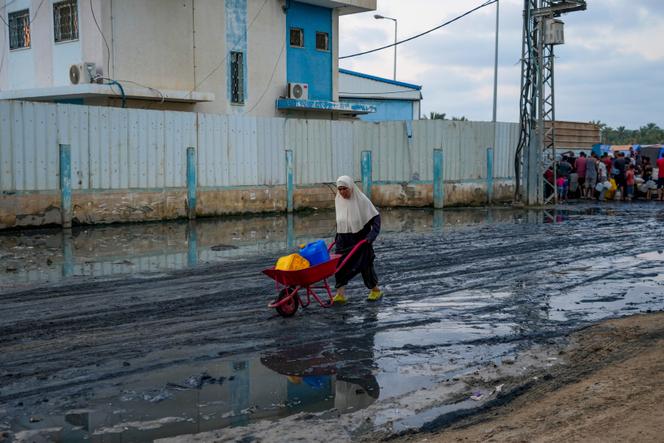


Yet another calamity for civilians in the Israeli-bombed enclave of Gaza: forced cohabitation with mountains of decomposing garbage – which attracts rats, insects and even snakes – and sewage that contaminates the ground. The stench renders the air unbreathable.
"The smell of garbage cans is everywhere in Deir al-Balah," said Hanine Ajjour, a Gaza resident and local financial manager for the NGO Norwegian Refugee Council, forced to flee to the central Gaza Strip locality after the Israeli invasion of Rafah in early May. "Since we arrived, there are so many displaced people that some are sleeping in the street. Others have had to move into tents near piles of garbage by the sea because no other land is available. And the smell is unbearable. In the displacement camps, sewage overflows into the alleyways, coming from holes dug into the ground to serve as latrines under tents," she described, in a reply written on WhatsApp messenger. Israeli authorities continue to prohibit the international press from entering into the enclave.
Also in Khan Yunis in southern Gaza, displaced people fleeing Rafah have had no choice but to settle near a vast temporary garbage dump, opened as an emergency during the war. In addition to the stench and the mud puddles in which they have to wade, there is the pollution generated by "the fact that, in order to cook, people are burning everything they can get their hands on, such as plastic, because they have no gas," said Ajjour.
The harsh living conditions, which Palestinians in Gaza have been enduring for months, are threatening to worsen as temperatures rise above 30 C. The heat and the proliferation of insects, coupled with the concentration of the population, have prompted humanitarians to fear an unprecedented public health crisis this summer. They are warning of the risk of cholera. Scabies, diarrhea, acute respiratory infections and hepatitis A are already present, as a result of insalubrity and a lack of access to clean water.
The situation is a direct result of the war: More than half of the water and wastewater treatment facilities have been destroyed or damaged by Israeli strikes, according to the United Nations. Gaza's five wastewater treatment plants are at a standstill. The two main landfills, on the eastern edge of the enclave, are inaccessible: They are located in the buffer zone established by the Israeli army.
Fuel is in short supply to run garbage trucks not already damaged. Waste collection workers have been killed or have themselves been displaced. In June, the United Nations Relief and Works Agency for Palestine Refugees (UNRWA) noted that garbage transfers were one of the missions refused by the Israeli authorities, who control all humanitarian operations in Gaza. Informal garbage dumps have multiplied and over 300,000 metric tonnes of solid waste are currently accumulating in the Gaza Strip, where the population is subject to repeated displacements.
You have 28.16% of this article left to read. The rest is for subscribers only.
